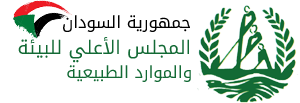Project Code: GCP/SUD/919/LDF (GEF ID: 10159)
Budget and funding sources: (GEF/SCCF/LDCF) $2,429,680
Co-financing: $ 11,300,900.00
Duration: January 2022 – December 2025
Executing Agency: Higher Council for Environment and Natural Resources Implementing Partners (GEF agency): Food and Agriculture Organization of the United Nations (FAO).
Objective:
The project objective is to reduce the vulnerability of pastoral and farming communities along migratory a routes in North Darfur by improving ecosystem health, social protection, and food and nutrition security.
Description of the Project
The project will strengthen the resilience of rural livelihoods and ecosystems affected by climate variability and land degradation. By integrating sustainable land and water management with improved community governance, the project seeks to reduce vulnerability, enhance food security, and support adaptive capacity among pastoral and farming populations in North Darfur. The project will apply incremental financing from GEF resources to catalyze capacity building setting in place the tools required to address fundamental barriers. This will be achieved through three integrated Components:
Project Components, Outcomes Outputs
Component 1: Participatory Sustainable Land and Resource Use Planning
Outcome 1: Farmers and pastoralists cooperatively and effectively manage shared resources to address climate change impacts and build system resilience.
Outputs:
- Output 1.1: Participatory climate response conflict resolution and decision-making structures in place.
- .Output 1.2: Strategic sustainable land use management framework operational to support adaptation and resilience.
Component 2: Pastoralists and Farmers Adopt Sustainable, Climate-Resilient Practices and Livelihoods
Outcome 2: North Darfur communities adopt and implement climate-resilient agriculture and livestock management approaches.
Outputs:
- Output 2.1: Concrete investments identified and implemented to strengthen resilience of private producers (farmers, pastoralists, MSMEs).
- Output 2.2: Agro-Pastoral Field Schools (APFS) support application of climate-resilient production practices.
Component 3: Lessons Learnt Captured, Mainstreamed, and Upscale
Outcome 3: Best climate-resilient and adaptive practices are mainstreamed and applied at local, regional, and national levels.
Outputs:
- Output 3.1: Results strengthen national-level resilience and adaptation policies.
- Output 3.2: Project lessons captured and disseminated.
- .Output 3.3: Effective Monitoring and Evaluation implemented.
Reports and Documentation:
Main project documents include the Project Document (ProDoc), Inception Report, Annual Progress Reports (PIRs), Mid-term and Terminal Evaluations, and technical guidelines generated throughout implementation
Benefits:
- The project will reduce land degradation and improve ecosystem services, contributing directly to SDGs on life on land and food security.
- Institutional and community capacity will be strengthened for sustainable resource management and evidence-based decision-making.
- Replicable and scalable results — project models and lessons are designed for replication within Darfur and nationwide.
- Sustainability ensured through integration of good practices into government policies, plans, and future budget lines.
- Enhanced transparency and accessibility via the Knowledge Management (KM) portal and regular reporting (PIRs, MTR, Final Evaluation) supporting accountability and future financing.
